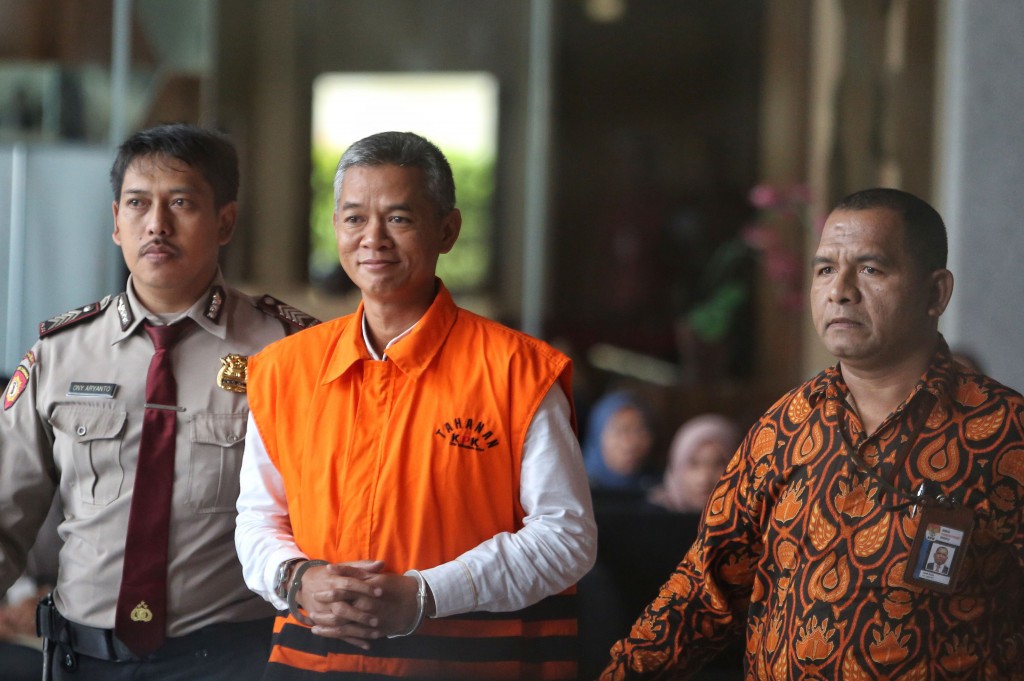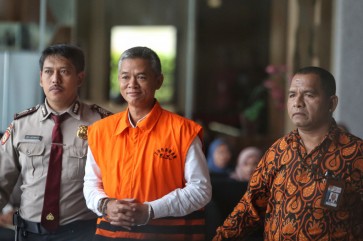Popular Reads
Top Results
Can't find what you're looking for?
View all search resultsPopular Reads
Top Results
Can't find what you're looking for?
View all search resultsKPK supervisory council under scrutiny for lack of transparency, lengthy raid permit
Despite revealing the case on Jan. 9, the KPK did not immediately conduct raids on locations that might contain supporting evidence, such as the PDI-P headquarters and the KPU office in Menteng, Central Jakarta. The antigraft body just obtained the raid permit from the KPK supervisory council – a new entity in charge of supervising the commission including granting wiretapping, confiscation and raid permits -- on Friday.
Change text size
Gift Premium Articles
to Anyone
T
he supervisory council of the Corruption Eradication Commission (KPK) was strongly criticized for a lack of transparency and delaying the issuance of permits for its investigators to raid several locations that might contain evidence related to a bribery case involving General Elections Commission (KPU) commissioner Wahyu Setiawan and Harun Masiku, a member of the Indonesian Democratic Party of Struggle (PDI-P).
The KPK on Jan. 9 named Harun a suspect for allegedly giving Wahyu a bribe of Rp 900 million (US$65,568) with the hope of getting a seat at the House of Representatives through a replacement mechanism. Harun wanted to take the seat from Riezky Aprilia, who was in line to replace the late Nazarudin Kiemas. Riezky was the rightful candidate as she won the second-highest number of votes after Nazaruddin in the April 17 election, while Harun was in sixth position.
Harun, a legislative candidate from South Sumatra, allegedly funneled the bribe through a businessman named Saeful, who gave it to Wahyu’s trusted aide, Agustiani Tio Fridelina. Both Saeful and Agustiani were former PDI-P legislative candidates.
Despite revealing the case on Jan. 9, the KPK did not immediately conduct raids on locations that might contain supporting evidence, such as the PDI-P headquarters and the KPU office in Menteng, Central Jakarta. The antigraft body just obtained the raid permit from the KPK supervisory council – a new entity in charge of supervising the commission including granting wiretapping, confiscation and raid permits -- on Friday.
“Looking at the case, I think that one of the main obstacles for KPK investigators to conduct raids regarding the case was the late permit from the supervisory council,” Transparency International Indonesia (TII) secretary-general Dadang Trisasongko told The Jakarta Post on Tuesday. “We still don’t know how the supervisory council manages its bureaucracy when issuing such permits, which has resulted in the delaying of the raid,” he added.
Dadang further lamented the situation, saying that any anticorruption agency was required to swiftly conduct its raids when handling cases, so that any document related to the case did not disappear and could be confiscated immediately. That requirement, he added, had to be realized by the supervisory council of the KPK.
“If the supervisory council keeps on delaying the bureaucracy [procedure] in issuing the raid permit, the public will not only criticize the lengthy process but also the accountability of the council,” Dadang said, adding that a similar situation could happen again in the future and hamper the KPK’s performance as a law enforcement agency.


















